As we all know by now, our federal government is promising up to $44,000 to ambulatory physicians who use a “certified EHR” in a way that fulfills “meaningful use”. The smoke is swirling more than ever around “certification” right now, but things are beginning to get a bit clearer on “meaningful use”. However, there are some concerns from real-world physicians, so let’s hope there are still changes to be made.
Let’s dig into the three “areas” which the HITECH Act specifically says will define Meaningful Use: (1) e-prescribing, (2) interoperability, and (3) data reporting. I will review each one, discuss the potential downsides of current definitions from a “real world perspective”, and suggest some ideas which might allow for more effective approaches to getting the results we want.
E-Prescribing
First, there is the ubiquitous e-prescribing. Everyone understandably loves this term. It implies faster, better, safer prescriptions as compared to hand written scripts. They are legible and there is drug-to-drug interaction checking. My concern here is that the government seems to want to make this equivalent to EDI (electronic data interchange). In other words, they are saying e-prescribing is ONLY fulfilled if the prescription is sent electronically to a pharmacy. So if I use a system that creates and maintains a computerized prescription with decision support, but I print it out for the patient — that does not count??? Unfortunately, this is how the government defined eRx for past reward programs (e.g. Medicare e-prescribing bonuses).
I’ve been creating prescriptions with various EMR systems for almost a decade. I get drug interaction checking, I get legible prescriptions which are saved in my system forever, and I print them out for patients so they can take them to the pharmacy of their choice. It would seem this fulfills the real needs and ideals of e-prescribing, so why make us jump through the final hoop of mandating that I send it electronically to a pharmacy?
Realize I’ve got nothing against the concept, in fact – I sent the world’s first electronic prescription to a pharmacy in Jan, 2000 (really – check it out). However, there are a lot of limitations with this strict requirement. First, not all patients know which pharmacy they are going to use, which means we can’t send it, or we have to spend extra time with the patient looking it up – but unfortunately, PCPs are in short supply, and that is really not the best use of our time.
Second, not all pharmacies accept e-prescriptions. Seriously — even the big chains (e.g. CVS, Walgreens) have individual stores that are not yet set up to accept these. And as of today, they might not accept it for certain types of controlled substances.
Third, most EMR systems are not well designed for EDI (e.g. it adds extra steps to the physician’s workflow, if it is available at all). So why is the government not rewarding physicians who do all their prescribing within their EMR, but simply print out the prescription? My suggestion to is that the government needs to think about expanding the definition of e-prescribing to include any system that includes these three components: (1) structured storage of the medications, (2) some form of drug interaction checking, (3) fulfillment of a legible (e.g. computer-generated) prescription by printing, faxing, or electronic submission. And then let the marketplace and users determine the best way to make these things happen.
Interoperability
Second, there is the issue of Interoperability. I’ve commented before that I think we obsess too much on this topic in search of the perfect world that allows all doctors to have all information on all patients all the time. Guess what? We usually don’t need ALL the information and we certainly don’t have time to wade through it all. Rather we need the relevant information, and often in a summarized format.
For example, we would rather hear “Patient went to ER for abdominal pain 1 month ago, turned out to be a virus”, versus having to review every vital sign, note, and lab result done that day. In the former, the patient could tell me this in five seconds, while in the latter, I would have to wade through dozens of screens and documents to try and get to the same idea.
Of course, I’m not saying that it is useless for EMRs to talk to one another (there is research saying it may cut down on extra tests), but it certainly is not the panacea that is always depicted in the classic anecdote of a man traveling to California and then getting hit by a car (or having an MI) and going to an ER and everything could have been better — if only someone had his EMR data!
In actuality, this is a rare event. The reality is that when it does happen, the patient or family tells the ER what they need to know the majority of the time, or they call the patient’s primary care doctor and get a nice summary via phone or fax. Quite honestly, even if the ER doctors had access to some ultra-secure national database of information, it is unclear if/how they would use it, and the truth is they would still likely call the primary care doctor to confirm anything since there can be so much garbage in-garbage out in those systems.
In other words, while there are some administrative efficiency benefits of disparate EMRs talking to one another, no one has actually found that there are significant quality or efficiency benefits. So let’s focus more on getting them working in each office first, ideally integrating them with labs and other local systems, and worry about regional and national integration down the road.
So my simple suggestion for this topic is to reward physicians who can ensure they have their lab and practice management data in an electronic format. Don’t worry whether they share it with others, just make sure they can get access to it themselves. Now combine those with the prescription data above and you have the makings of data warehouse that can actually support quality improvement programs.
Of course, if you are looking for some national interoperability also, then how about funding these options? I’d suggest it would take less than $10 million to do either of them!
- Require all US citizens to keep a slip of paper in their wallet with their allergies, medications, major problems, and the contact info for their doctors. It’s cheap and ubiquitous. That’s the first place paramedics look whenever they find an unconscious person. If you want to be helpful, allow people to fill out this form online, store it online themselves, and then print in wallet fashion. Or if want to be really fancy, allow them to store it on their driver’s license. My driver’s license currently gets scanned when I pick up Sudafed for my kids, so surely the government can figure this out.
- Create a national repository of all medications prescribed by all pharmacies. I this is possible since some companies offer this service already and many states already do it for narcotics (i.e. I can look up any patient’s name and view all narcotic prescriptions they picked up in the past year). That way, if someone goes to the ER, the ER providers can access this government database to check on all the meds the patients have picked up at the pharmacy. And ironically, this is actually more reliable than getting access to a doctor-created medication profile since the ER wants to know what a patient is really taking, not just what was prescribed. Let’s face it, this would be much quicker, cheaper and more consistent than trying to get all physicians to use an EMR, keep all meds up to date, and then integrate all those systems together!
Data Reporting
Finally, there is the Data Reporting component. OK, no complaints there — that is a good idea. We can’t improve quality without measuring things. Just don’t require that the reports have to come directly out of the “certified EMR”. Similar to PQRS, if a doctor can get you the data by doing a manual review or using a separate database, then let them do that. Many EMRs do not allow for easy data reporting, so many organizations are already pushing data into an “Enterprise Data Warehouse” for reporting instead. Additionally, there are assorted companies that allow for high level quality reporting by interfacing with a physician’s practice management system, their lab system, the payor’s systems, and local pharmacies. They then allow the physicians to access and use that data in ways that quite honestly are better than anything their EMR can give them. And isn’t that what we want?
So in summary, let’s keep the focus on rewarding the ends, not just the means, and we will have a much greater likelihood of moving in the right direction, both with respect to EMR adoption as well as with other innovative ways in which we can use information technology in healthcare.

Lyle Berkowitz, MD is a practicing internal medicine physician, a healthcare IT consultant (www.DrLyle.com) and founder of the Szollosi Healthcare Innovation Program (www.TheSHIPHome.org). He blogs regularly at The Change Doctor (http://drlyle.blogspot.com/).
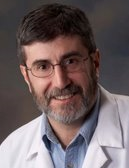


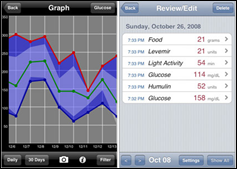
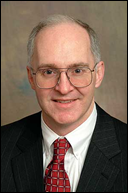



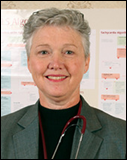
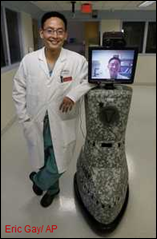
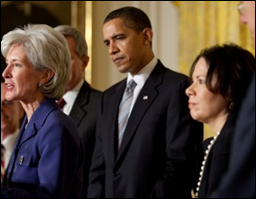

The article about Pediatric Associates in CA has a nugget with a potentially outsized impact: the implication that VFC vaccines…